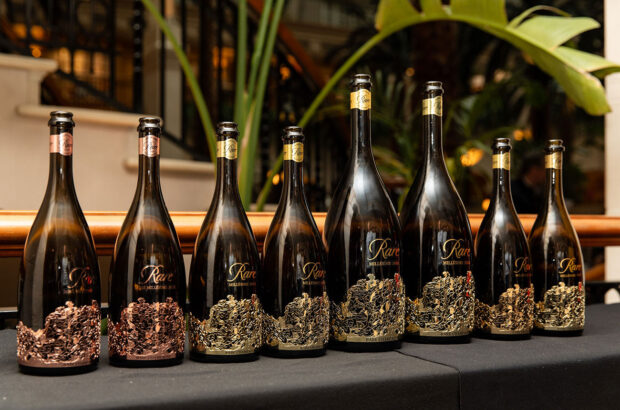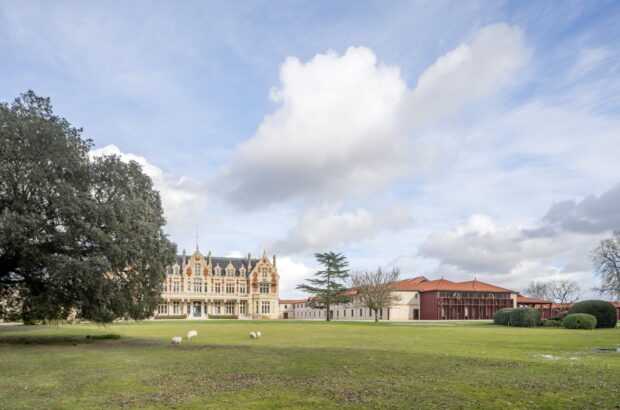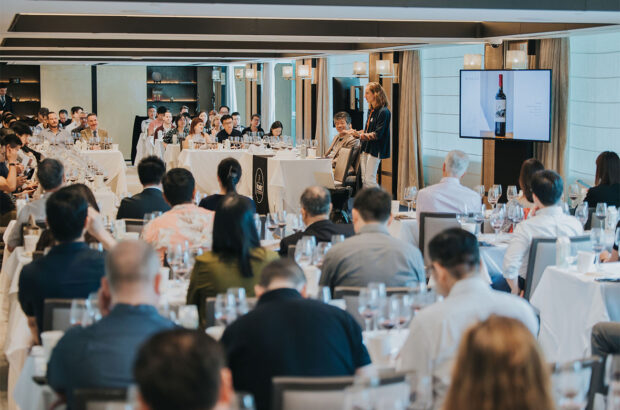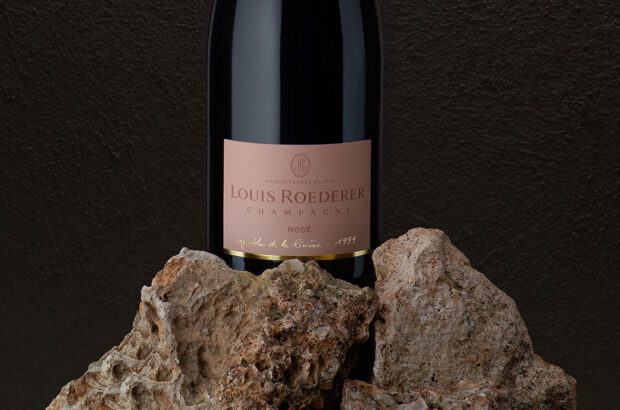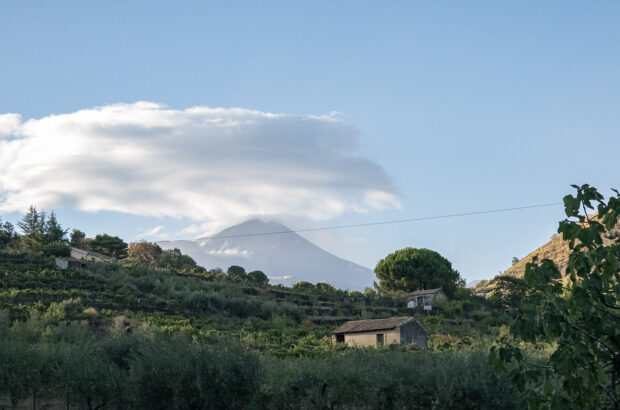The last few months have been disquieting for Bordeaux watchers. First there was that ad – you know, the snogging couple stripped to their underwear enjoying a mood-enhancing glass of claret – and then came the unprecedented appearance of a high-powered delegation from the Comité Interprofessionelle du Vin de Bordeaux at the Hotel Meridien in London. It's hard to decide which was the more remarkable.
The Bordeaux quality debate
Stung by recent, increasingly voci-ferous criticism from the British trade and press, the CIVB sent four heavy hitters to London to ‘listen, to learn and to improve the dialogue’ between Bordeaux and its most traditionalmarket. The fact that exports to the UK had dipped by 10% in the preceding 12 months (much of it due to declining demand for Bordeaux quality white wines) probably added to the sense of urgency. Bordeaux is a region that sets great store by the free market. Representing the Gironde were Jean-Louis Trocard, president of the CIVB, Eric Dulong, vice president of the CIVB, Patrick Jestin, managing director of négociant house Dourthe and Charles Sichel, director of Maison Sichel. They were joined in the room by a correspondingly impressive line-up of brokers, merchants, major retailers, auctioneers and journalists, as well as a camera crew.
If the Bordelais came to London hoping for a PR opportunity, with a few soft-ball questions, they must have been disappointed. What was clear from the ensuing debate, ably chaired by the discreetly diplomatic Jancis Robinson MW, is that France’s largest appellation contrôlée wine region is under heavy shelling in its third largest export market.
Questions covered a wide range of topics: the CIVB’s budget (and how much of it had been spent on those lingerie ads), its rôle in training and education, the relationship between the CIVB and the Institut National des Appellations d’Origine (INAO), permitted yields, machine-harvesting, the possibility of creating a new sub-designation for Bordeaux, such as Vin de Pays de la Gironde, consumer trends, price points, vintage variations and the en primeur market. Their underlying tone was frequently critical.
Central to the debate was the quality of Bordeaux’s wines, especially at the generic level. No one denied that Bordeaux can, and does, produce some sublime wines. As Stephen Browett of fine wine brokers, Farr Vintners, argued: ‘There really isn’t anyone in the world making wine of comparable quality, subtlety and complexity. That’s why consumers are prepared to pay very high prices for great wines.’ Hugh Johnson pointed to Bordeaux’s ability to ‘produce a vast range of flavours… which has no comparison in the New World. People must be encouraged to enjoy the fact that Saint-Emilion and Saint-Estèphe are as different as beef and lamb.’
Fine wines are one thing, basic Bordeaux rouge something else altogether. Jancis Robinson was not alone in believing that ‘the nub of the problem… is what the heck to do with inexpensive Bordeaux?’ To listen to some retailers, cheap claret is on the skids. Sebastian Payne MW of The Wine Society said that perceived unreliability was a huge problem for Bordeaux. ‘The various appellations protect growers but provide a poor guarantee for the consumer.’ Chris Hardy of Majestic Wine Warehouses confirmed that more and more people want ‘overtly fruity wines including a decent amount of sunshine’ and that Bordeaux is behind its competitors ‘in terms of realistic pricing and certainly commercial quality’.
Speaking for the defence, Michael Broadbent claimed that Bordeaux wines are misunderstood. For many consumers, he said, the preferred style of wine is ‘gob-smacking, full of colour, full of fruit. I think people don’t understand tannin, which is what makes Bordeaux such a super table wine.’ The representatives from Bordeaux also stressed their desire to produce unique wines rather than copy New World styles. ‘Whilst we understand the need to adapt to a changing market,’ said Jean-Louis Trocard, ‘we are also striving to maintain a clear identity for Bordeaux which compromises neither the trust of the consumer nor the expectations of the trade’.
Solutions
For all that, the Bordelais are aware that there is a problem. ‘Some wines of low quality are put on the market,’ admitted Eric Dulong. ‘We don’t want to see that any more. It is unacceptable.’ More importantly, Dulong and the CIVB have come up with a solution of sorts. This is ‘Downstream Control’, a system which will focus on identifying and shaming poor quality producers. The plan is to buy 200 ‘mass market’ wines off the shelf in Germany, France, Belgium and the UK, and taste them blind back in Bordeaux. (Look out for men in dark glasses leaving branches of Mammouth and Tesco with armfuls of claret). If any of the samples is unacceptable, the CIVB will take the matter up with the producer, négociant or distributor concerned. It is not clear what sanctions will be implied, but it is possible that the CIVB could withdraw the wine from the market.
The results of Downstream Control will not be immediately apparent. ‘We won’t know the results in six months or even two years,’ says Eric Dulong, ‘but we consider that in five years we will see the difference’. This was not soon enough for some critics, who argued that the problem needs more pressing attention. Several people pointed out that, while Downstream Control is all well and good, what happens at the source (especially in the vineyards) is far more crucial. Richard Neill said that ‘high yields are one of the biggest problems in Bordeaux’, while Monty Waldin was critical of machine harvesting and the over-use of chemicals in the vineyard. Strictly speaking, this is INAO’s territory and therefore beyond the remit of the CIVB.For very different, largely political reasons, Downstream Control has also been criticised in Bordeaux (it’s not easy to please everyone in a region of 12,000 growers and 400-odd négociants). The representatives of the CIVB admitted that changing the mentality of Bordeaux’s less scrupulous growers and négociants will not be easy. But what is the alternative for Bordeaux in an increasingly competitive world? Patrick Jestin summed it up best: ‘We know that it will take time, effort and a lot of money to convince people to change from producing low quality, cheap wines. But it’s the only way for Bordeaux to go.’ No one who attended the Bordeaux debate would disagree with him.








